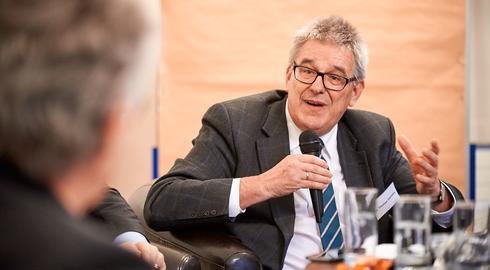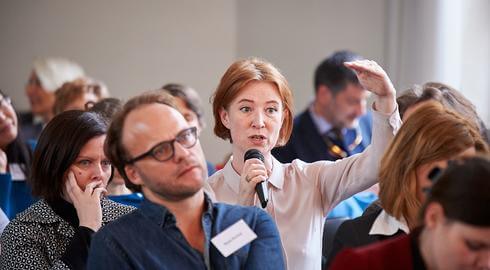Members of the Bundestag discussed at a meeting organized by urgewald in March 2017. Participating in the debate were: Philipp Murmann (CDU), Manfred Zöllmer (SPD), Thomas Gambke (Greens) and Axel Troost (Left Party).
Was it right for Germany to get involved with the bank?
A clear yes initially echoed from the round of politicians: this way, the Bundestag could at least make an attempt to "orient a bank somewhat differently, so to speak, than the classic banks we have in the field today," said Thomas Gambke (Greens). "We can only achieve something if we are there, if we get involved," added Manfred Zöllmer (SPD). "I have hope that a modern bank will now be created," said Philipp Murmann (CDU). Parliamentarians also expressed hope that the AIIB could be built as a counterweight to the increasingly authoritarian U.S. under Donald Trump and the U.S.-dominated World Bank. So the AIIB as a possible trailblazer rather than a laggard on the issue of environmental and social standards? NGO representatives were skeptical.


